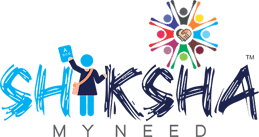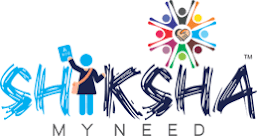What are the types of cheques in India?
Although blank cheques and crossed cheques are common, they are not the only types of cheques you can issue.
A cheque is written by an individual or an organisation for large payments. Unlike cash, cheque payments are recorded with the bank and reflect in your bank account. But what is a cheque?
A cheque is a document that tells your bank to transfer the mentioned amount to a person or organisation. There are mainly ten types of cheques in India that you should know about.” The ten types of cheques include:
1. Bearer Cheque
A bearer cheque is the type of cheque that allows the person bearing or carrying the cheque to the bank to receive the payment specified on the cheque. These cheques have the words “or bearer” printed in front of the name of the payee. It means that the amount of the cheque issued can be either received by the payee or the bearer. It also makes a bearer cheque transferable, as anyone who is carrying it can receive the payment. The bank need not request the authorisation of the issuer to make the payment of this cheque.
2. Order cheque
The second type of cheque is the order cheque. An order cheque is the one that has the words “or bearer” cancelled out. It means that only the individual whose name is mentioned as the payee can receive the specified sum of money. In this case, the bank does not check the bearer’s identity before making the payment.
3. Crossed cheque
A crossed cheque is the type of cheque where the issuer makes two slightly bent, parallel lines on the top left corner of the cheque, with the word ‘a/c payee’ written. It means that the specified sum of the cheque, regardless of who is handing it over, will only be transferred to the individual/organisation whose name is mentioned as the payee. A crossed cheque is also safer because it can be cashed only at the payee’s bank.
4. Open cheque
An open cheque does not have the crossed lines, and hence, is also called an uncrossed cheque. An open cheque can be cashed at either of the banks, namely, the payer’s bank or the payee’s bank. Also, an open cheque is transferable by the payee, which means they can make someone else the payee. The issuer of the open cheque is required to sign on both the front and back of the cheque.
5. Post-dated cheque
A post-dated cheque bears a date later than the date it was issued on. It can only be cashed after the date specified by the payer. The post-dated cheque can be valid after the mentioned date but not before it. Hence, even if it is presented to the bank, the bank will not process it until the mentioned date.
6. Stale cheque
A stale cheque has already passed its validity date and can no longer be cashed. Currently, a cheque is considered valid until three months from its issued date.
7. Traveller’s cheque
Issued by a bank, a traveller’s cheque can be cashed by the payee at another bank in another country. The payment will be received in that country’s currency. It becomes useful when you are heading on a foreign trip and do not wish to carry too much cash. A traveller’s cheque does not have an expiry date.
8. Self cheque
A self cheque has the word ‘self’ written as the payee. It is used by the issuer to withdraw money from their bank account. A self cheque can be cashed only at the issuer’s bank.
9. Banker’s cheque
A banker’s cheque is issued by the bank itself. A bank issues a banker’s cheque on behalf of an account holder to issue payment to another person in the same city. Banker’s cheques are only valid for three months, however, post their validity period they can be revalidated if certain conditions are fulfilled.
10. Blank cheque
A blank cheque is the one that has the sign of the issuer and no other details are filled in. Blank cheques pose a high risk because if lost, anyone who finds it can fill in any amount and issue it to themselves.
So that was everything about the types of cheques that you can issue and receive. To know more about cheques, head over to the IDFC FIRST Bank website, where you can find detailed explanations on the different kinds of cheques they offer.













0 Comments